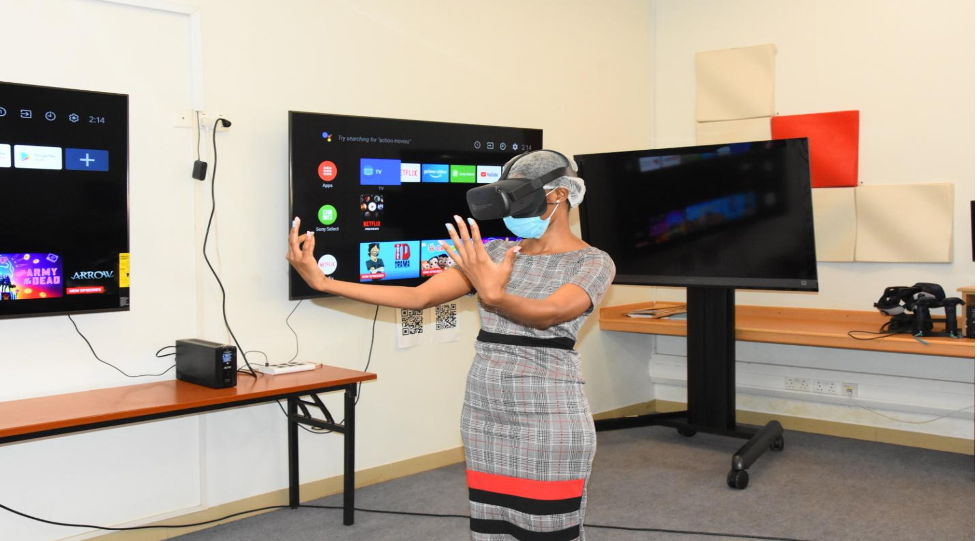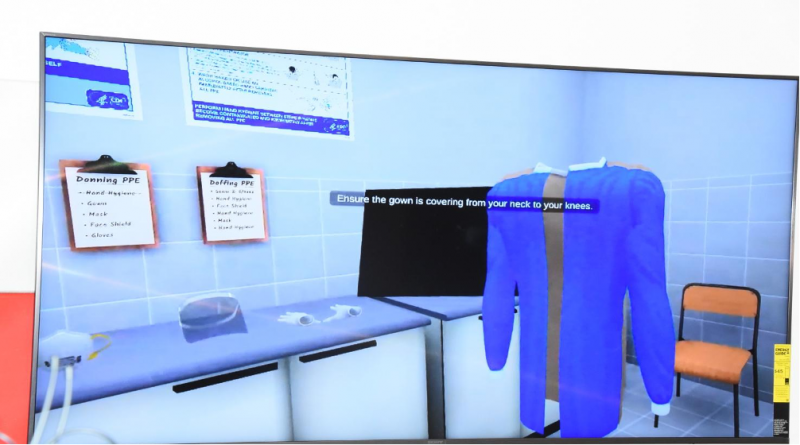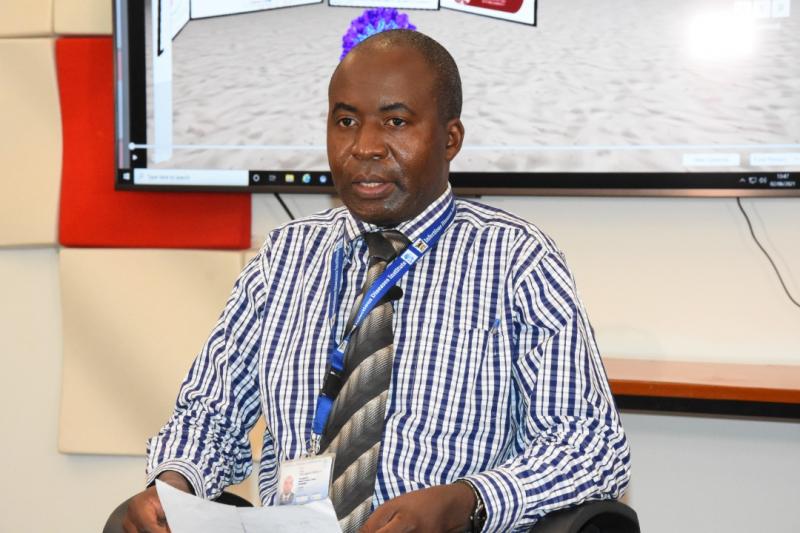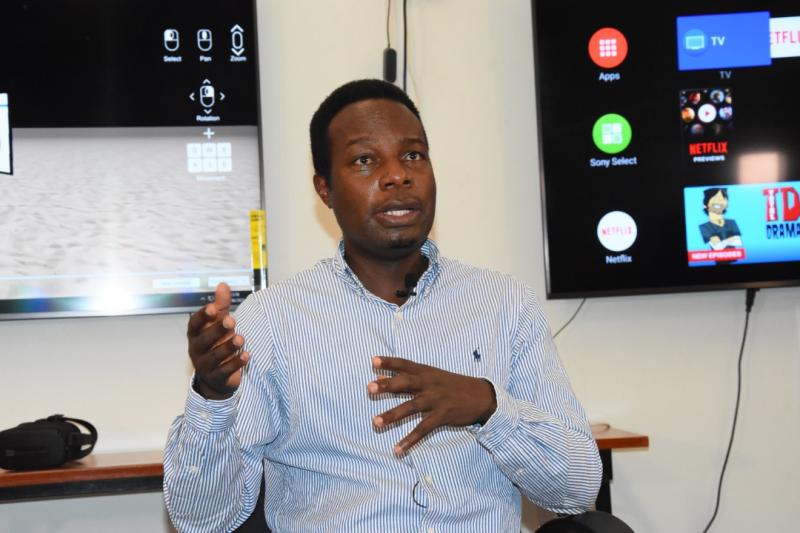
Innovation could change the way medics are trained to manage infectiuos diseases like COVID-19
Many people’s appreciation of Virtual Reality (VR) is limited to gaming and entertainment, but new trends suggest something different.
According to new research from Makerere University, the future of healthcare is likely to be more of a virtual experience, especially training health workers using virtual reality technology.

Grace Kebirungi, a microbiologist and coordinator of the program, demonstrates how the VR training system works.
With the danger of infectious diseases like COVID-19 on the rise, prevention and control of infection is a skill that healthcare workers require with minimal time to master. Researchers at Makerere University have turned to VR technology to train health workers in management of COVID-19 without taking them to training sites, which would expose them to diseases like COVID-19.
“In VR training, we use computer technology to create a simulated environment that immerses the user into the experience of the health facility. We also use dynamic 3D visualization to actualize a near real-world rendition of the circumstances and context of Virtual Reality,” said Dr. Daudi Jjingo, the research project’s principal investigator.
According to Dr. Umar Sekabira, head of Training and Capacity Development at Makerere University’s Centre for Infectious Diseases Institute (IDI). “With Virtual Reality, we are able to simulate real health situations as it is in the real health facility and immerse trainees into the real experiences.”

Inside the simulated health facility as shown through the VR technology
When researchers conducted an analysis on classroom training by Uganda’s Ministry of Health (MoH) focused on interpersonal communication, much of it relied on onsite and workshop-based methods. The outcome revealed a gap in capacity and skill. This approach to training also meant that health workers had to be absent from work, since they were required to be present for training.
“VR technology doesn’t take health workers away to a site for training. It eliminates the challenges in training to handle infected individuals without risking infection. You can teach about COVID-19 virtually and also assess the learners as they learn,” Dr. Sekabira said.
VR, therefore, presents a new health worker model that can help health workers master skills to handle infectious diseases during their day-to-day work. The trainee health workers can also learn without being exposed to infection, which reduces costs for personal protective equipment in training, among others.

Dr. Umar Sekabira, one of the principal Investigators, explains how VR technology can work in medicine.

Dr. Daudi Jjingo says VR technology will change the way healthcare workers are prepared to handle infectious diseases.
However, the new innovation is still far from completion. The researchers say the VR technology is undergoing three phases: didactic, skills observation, and practical sessions, all of which will be done in a VR environment. They say that there is potential for VR technology to be developed further, to make it accessible on phones.
The innovation is funded by the Government of Uganda through Makerere University Research and Innovation Fund (Mak-RIF).




